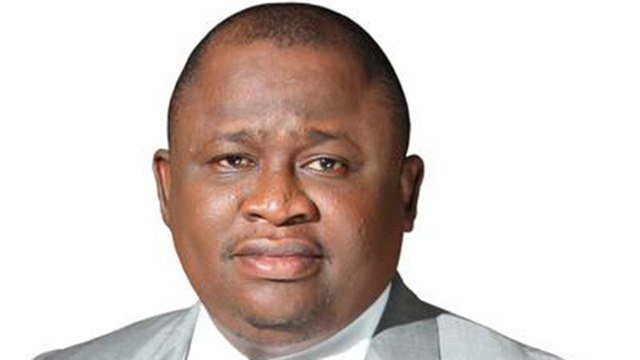If Nigeria is to avoid a repeat of the electoral disillusionment that followed the 2023 polls, the Independent National Electoral Commission (INEC) must embrace full technological transparency. not as an experiment, but as a constitutional duty. With a new chairman in office and the general elections just seventeen months away, INEC has both the time and the mandate to put its house in order. What it requires now are sound policies, deliberate reforms, and the will to deliver elections that leave no room for incompetence or controversy.
It is within this context that the Athena Centre for Policy and Leadership’s public dialogue of 6 October 2025, themed “Innovation in Electoral Technology 2015–2025: Gaps, Gains and the Road Ahead”, becomes a milestone in Nigeria’s democratic journey. Since its founding in 2023, the Centre has established itself as one of the few think tanks consistently engaging with the country’s governance and electoral systems. Through post-election audits and evidence-based advocacy, it has sought to close the gap between policy and practice. On 6 October, it took a decisive leap forward with the formal launch of the Athena Election Observatory (AEO) and the unveiling of new findings aimed at addressing flaws in the country’s electoral system, based on the outcome of the 2023 elections.
Indeed, Nigerians have a not-so-good memory of 2023: a year defined by controversy, frustration, and a sharp erosion of public confidence. Across the political spectrum, stakeholders have since called for far-reaching electoral reform: to restore trust, guarantee credible outcomes, and ensure that democratic transitions are free from chaos. These calls have placed INEC at the centre of national scrutiny, urging it to modernise its operations and repair the cracks in its credibility. For many, the next general election represents more than another cycle — it is a test of whether Nigeria’s democracy can evolve or remain trapped in repetition.
This backdrop gave weight to the National Dialogue held by the Athena Centre on 6 October at the Shehu Musa Yar’Adua Centre, Abuja. The gathering was as inclusive as it was strategic, drawing together political leaders, INEC officials, academics, media professionals, development partners, civil society, and the general public. Its agenda was broad, its tone pragmatic, and its outcomes substantial.
From the presentation of a detailed assessment report on INEC’s use of election technology to the findings of a nationwide citizens’ survey conducted with NOIPolls, and from the recommendations distilled from pre-event workshops to the high-level panel discussions that followed, the dialogue produced a rich harvest of insight. Together, these contributions now form a vital compendium for reform — a roadmap for strengthening Nigeria’s electoral process and rebuilding public faith in the system that sustains its democracy.
The report assessing INEC’s deployment of the BVAS and IReV systems revealed commendable compliance in their use but also exposed operational irregularities that gave rise to over-voting and accreditation inconsistencies. While technology has been embraced in the electoral process, its execution remains uneven. Yet, Nigerians, ever hopeful, continue to look to the future with cautious optimism, according to the findings of the surveys. The insights from the citizens’ polls indicated that citizens still believe in the promise of technology to safeguard their votes and restore confidence in the ballot.
At the policy dialogue, Governor Charles Soludo of Anambra, Governor Dauda Lawal of Zamfara, Chief Osita Chidoka, Chancellor of the Athena Centre, and Ogbeni Rauf Aregbesola, National Secretary of the African Democratic Congress, confronted Nigeria’s electoral dilemma head-on.
Their verdict was unmistakable: technology, no matter how sophisticated, cannot by itself guarantee electoral credibility. Without justice reform and institutional integrity, innovation risks becoming a hollow exercise.
The dialogue’s reflections yielded a harvest of reform-minded ideas. Central among these was the call for legal and institutional renewal, beginning with amendments to the Electoral Act (2022) to explicitly enshrine the use of BVAS and IReV. The process of appointing the INEC Chairman and Resident Electoral Commissioners—currently under presidential oversight—should be transferred to an independent body to preserve the Commission’s autonomy. In the same spirit, the establishment of legal penalties for discrepancies between accreditation figures and declared results was proposed to curb impunity and restore public trust.
The discussion also drew attention to INEC’s technological governance gap and the need to strengthen its operational backbone. It was recommended that the Commission conduct nationwide pre-election stress tests, enhance device reliability, expand server capacity, and eliminate network redundancy. A forward-looking proposal called for the creation of AI-supported monitoring units to detect anomalies in real time — a measure that could decisively address credibility concerns before they escalate.
Recommendations from the discussion aligned closely with the early proposals drawn from pre-event online workshops with stakeholders.
Notably, transparency—long the Achilles’ heel of Nigeria’s electoral process—and oversight, the persistent gap in INEC’s management of elections, stood out as central concerns. Stakeholders urged INEC to publish BVAS accreditation counts alongside official results and to ensure that Form EC8B is uploaded to IReV across all collation levels. The panelists further proposed the creation of public dashboards displaying discrepancies and their resolutions — a reform that could finally turn opacity into accountability.
Attention was also drawn to the human element of electoral administration. All parties agreed that INEC must be strengthened through comprehensive training for presiding and collation officers, the provision of professional IT support during elections, and the inclusion of ethics and accountability modules in the orientation of ad hoc staff. The dialogue further emphasised the need to integrate the voter register with the National Identity Database (NIN), regularly delist deceased or inactive voters, and sustain a broad-based programme of voter education to help citizens understand the workings of BVAS and IReV. Such civic enlightenment, reinforced by citizen monitoring and youth engagement, would breathe new life into the ideal of participatory democracy.
The launch of the Athena Election Observatory (AEO) reaffirmed the Centre’s commitment to enriching Nigeria’s democratic landscape through evidence-based advocacy and strategic intervention. In the forthcoming Anambra governorship election on 8 November 2025, the AEO will deploy 1,000 observers to monitor technological performance and administrative compliance. Beyond this, it is developing a suite of initiatives—including a Post-Election Dialogue Series, an Electoral Health Scorecard, and an Annual State of Elections in Africa Report—each designed to deepen reflection, strengthen accountability, and sustain the momentum for reform.
If the 2027 elections are to stand as a genuine milestone in Nigeria’s democratic evolution, reform must be anchored in three words: independence, transparency, and accountability. INEC must rise above political pressure; the judiciary must protect the sanctity of the vote, not the convenience of power; and political leaders must choose the hard road of reform over the easy path of control.
Nigeria has never lacked technology or talent — only the will to use both honestly. If these insights are heeded, 2027 could yet mark not another ritual of disappointment, but a true renewal of faith in democracy.
The Athena Centre, for its part, reaffirms its commitment to this renewal — through evidence, engagement, and unwavering advocacy for institutions strong enough to outlast individuals. For in the end, democracy survives not by chance, but by design, discipline, and the courage to do what is right.
Liam is the Media and Communications Officer, Athena Centre for Policy and Leadership






